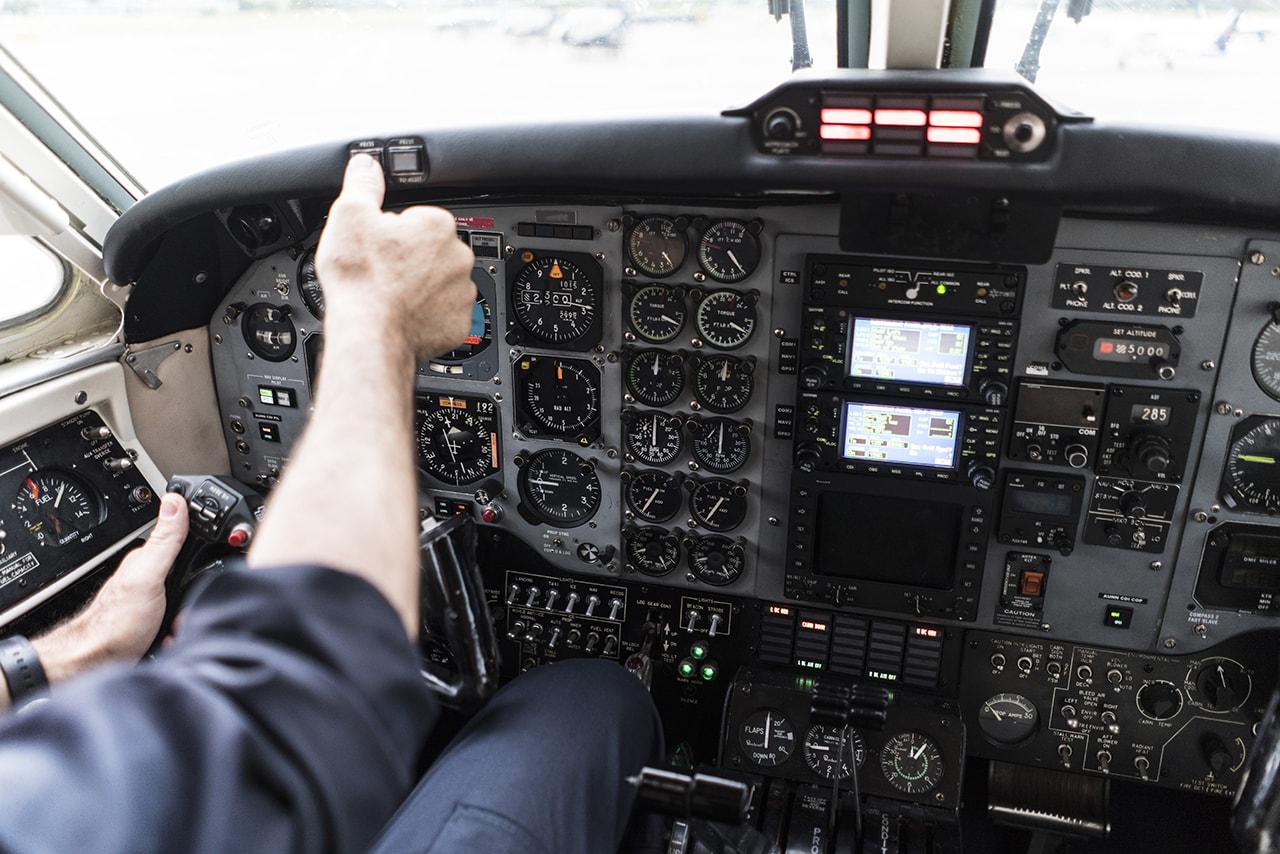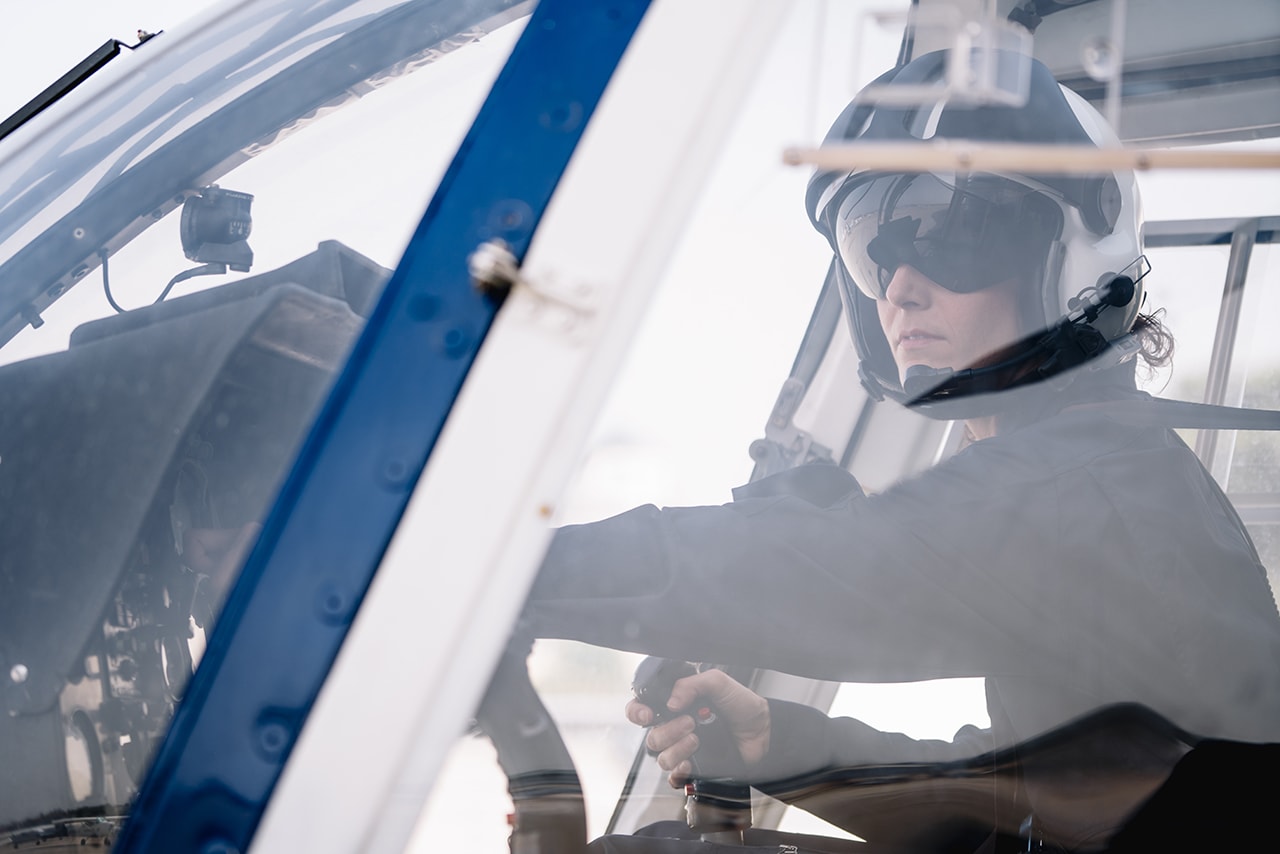Top Flight Instructors: Find the Best in Aviation Training
May 12, 2025
Wondering how to find the best flight instructors? In this guide, you’ll learn the essential traits, qualifications to look for, and tips for choosing the right instructor for your aviation needs.
Key Takeaways
-
Selecting the right flight instructor aligned with your goals and learning style is crucial to success in aviation training.
-
Master CFIs provide superior flight training experiences, recognizing high standards of instructional quality and professional growth.
-
Continuous professional development and affiliation with organizations like NAFI are essential for flight instructors to maintain credibility and stay current in the industry.
Discover the Best Certified Flight Instructors
Having a great flight instructor can make all the difference in your journey to becoming a pilot. Premier certified flight instructors are not only good pilots but also great teachers. They have a deep understanding of aviation topics, including the fundamentals, and can explain complex principles clearly and concisely.
For these instructors, communication is key. Flying proficiency isn’t enough it’s about teaching that skill to their students. Skilled instructors can break down complex subjects into bite-sized chunks so students can understand.
Top CFIs have keen observational skills to accurately assess student progress and provide personalized advice and guidance.
Flexibility is what sets out CFIs apart they know every student learns differently and tailor their instruction to each student. Good instructors can adapt whether visual aids, hands on experience or detailed verbal guidance works best for the student’s learning style.
Strong interpersonal skills and leadership qualities are key to creating a positive learning environment. These traits guarantee top notch training during your time learning to fly under certified instruction especially when guided by a certificated flight instructor recognized by the FAA.
How to Choose the Right Flight Instructors

Choosing the right flight instructor is a big part of your aviation training journey. This decision should be based on your own training goals and how you learn. Whether you’re getting a sport pilot certificate or an advanced career in aviation, you need to find an instructor whose teaching style matches your goals.
To make an informed decision several things need to be considered. You need to check their credentials, get a sense of their teaching methods and read reviews from past students. Each one contributes to the quality of your training and has a direct impact on your success as a pilot.
If you're also mindful of your budget, look for programs or instructors that offer inexpensive flight training without compromising quality.
Assessing Qualifications
When choosing a flight instructor many things to consider. To become a certified flight instructor, you need to have at least a commercial pilot certificate and an instrument rating for the category and class of aircraft if you want to teach in airplanes or powered-lift.
If you want to qualify as an instructor you need to pass two written exams and a practical test to get certified by the Federal Aviation Administration.
Making sure these qualifications are met is the first step in finding a good and trustworthy guide for your flight training.
Understanding Teaching Styles
Flight instructors can teach in many different ways and understanding these differences is key to your success. Some instructors will stick to a set syllabus and structured method, others will adapt their lessons to how you progress and what you need specifically.
Instructors will often ask about your learning style and preferences to shape their teaching to suit you.
To help you learn during training instructors may use tools such as visual aids for visual learners, hands on exercises for tactile learners or oral explanations for auditory learners.
Knowing what type of learner you are will help you choose a flight instructor whose teaching style matches how you learn best. The synergy between your learning style and the instructor’s teaching style will help you understand and retain more from your flight training sessions.
Checking Reviews and Testimonials
Reading reviews and accounts from past students can give you a good idea of an instructor’s ability and style. On different forums, student reviews often highlight the good and bad points of flight instructors, giving you a glimpse into their teaching methods and ability to communicate.
It’s worth your time to read both good and bad reviews to get a full picture of an instructor’s skills. These reviews will help you determine if an instructor meets your specific training needs so you can make an informed decision.
Benefits of Training with a Master CFI
Training with a Master CFI will make your flight training experience so much better. This prestigious title, awarded by the National Association of Flight Instructors (NAFI), means they are an excellent teacher and have continued to develop professionally.
Master CFIs get special benefits including plaques and visibility on NAFI’s website which helps their reputation. Training with a Master CFI means you will be trained by an instructor who has been officially recognized for their dedication and distinction.
The Role of Professional Organizations in Flight Instruction

Professional organizations are key to keeping flight instructors at the top of their game and the National Association of Flight Instructors (NAFI) is one of the main organizations that supports these instructors and elevates their professional status.
NAFI and other similar organizations have standards recognized by the FAA that instructors must meet to deliver top-notch aviation training.
Being part of these national organizations can really boost a flight instructor’s reputation and access to resources for development. Through NAFI and other organizations, instructors have access to a wealth of networking opportunities, training materials and support systems to help them improve their skills.
NAFI Membership Perks
Being a member of the National Association of Flight Instructors (NAFI) can really help your flight instructor career. Members get to attend networking events, use educational materials and participate in mentorship programs that all contribute to your growth.
NAFI also offers industry-specific discounts, reduced-rate liability insurance, and access to advanced instructional resources all designed to help flight instructors stay current and effective in their teaching.
Ben Johnson, founder of Flight Nerd Air Force, is a Certified Advanced Instrument Ground Instructor (AGII) and a proud NAFI member, bringing that same professional commitment to every student.
If you're ready to take the first step toward becoming a pilot and want to learn from someone with proven experience and professional recognition, reach out to Flight Nerd Air Force to get started with your training.
Professional Development Programs
NAFI and other organizations offer professional development programs to help CFIs elevate their teaching and technical skills. The NAFI Professional Development Program has a 40 hour course on leadership and teaching methods. Through these programs instructors can fine tune their instructional techniques and learn from the experts.
For flight instructors it’s important to stay current and committed to ongoing education to maintain their certification. Continuing professional growth is important for them to stay relevant and meet industry standards while keeping their reputation intact.
Innovations in Flight Training Programs

Technology is changing the landscape of flight training as modern programs are incorporating virtual and augmented reality. By using these immersive tools students can practice in simulated environments and retain more of the complex concepts.
The inclusion of these innovations is changing the way we approach flight training making it more fun and efficient. These technologies help prepare students for real flying and overall better training results.
Virtual Ground School Sessions
Virtual ground school is a big deal in flight training. These virtual sessions allow students to take their learning to the next level and get to the level of understanding required to be an airline pilot. Virtual ground schools are a great option for many aspiring pilots looking for aviation training.
Simulator-Based Training
Modern flight training relies heavily on flight simulators which are a key part of the training process by providing a safe and controlled environment to replicate real flying scenarios. These tools allow students to practice complex aircraft maneuvers and emergency drills without any real risk.
Modern flight simulators are used to create custom training sessions that can include challenging weather conditions and prepare pilots for modern types of aircraft like drones and electric planes. The beauty of these simulators is they can provide realistic yet completely safe training for those learning to fly.
Connecting with Local Flight Instructors

Finding a local flight instructor is key to tailored training and a smooth learning process. Using online resources and social media can help you find one near you. These platforms often have filtering options so you can narrow down your search by specific standards so you find the right fit for your training needs.
Using these digital tools helps you connect with flight instructors who match both your educational requirements and learning style. Getting personalized instruction from a local flight instructor makes the experience more effective and more fun.
Online Search Tools
Social media and online platforms are great tools to find reviews on flight instructors. These places often have options to filter your search by the instructor’s expertise so you get the best match for your aviation training needs. Aviation forums and websites are also filled with such reviews.
Instructor profiles are easily accessible along with map based features to find an instructor near you. Student reviews reveal the teaching skills, communication skills and overall satisfaction levels of an instructor. By weighing the praises and complaints in these reviews you can determine an instructor’s suitability for your training needs.
Booking and Communication
Modern systems have made the booking and interaction with flight instructors more efficient by allowing online booking of lessons which makes life easier. A mobile app may have features to search for instructors, send messages and transact easily.
Digital messaging services makes it easier to communicate with instructors and in-app notifications will keep you informed of lesson confirmations or updates via email. Many platforms have review mechanisms to rate your experience with instructors post session to make the educational journey clear and smooth.
Taking Your First Flight Lesson

Your first flight lesson is a big milestone in your aviation journey. A pre-flight briefing will cover the lesson plan and safety procedures including a flight review. This marks the beginning of your journey into flying lessons, where you'll build foundational skills and confidence in the cockpit. Initial preparation will be to familiarize yourself with the aircraft, its controls and instruments.
During the lesson you will fly the aircraft under your instructor’s supervision. Post landing there will be a debriefing session to review the flight, ask questions and provide feedback on your performance.
This comprehensive approach will make you confident and knowledgeable from your first lesson which teaches you the basics.
Maintaining Professional Standing as a Flight Instructor
As a flight instructor you need to be committed to personal growth and learning forever. Instructors need to be actively involved in Education to stay current with industry standards and educational methods.
Getting a Gold Seal Flight Instructor award is a proof of an instructor’s high performance and teaching skills and adherence to professional standards.
Instructors can stay current by being part of professional bodies and taking opportunities for ongoing learning which will familiarize them with recent technological advancements and updates in regulations.
This unwavering commitment to continuous improvement will equip flight instructors to handle the unexpected and prioritize safety during instruction.
Continuing Education
Flight instructors must continually upskill and uptrain. Staying current with changes in aviation regulations and industry advancements is achieved by getting Qualifications and attending training seminars so you can stay current with industry best practice and technology.
This ongoing education helps instructors to better handle the unexpected and therefore safety in flight training. By keeping their training current with industry standards they keep their reputation and credibility intact.
Networking and Community Involvement
Participating in activities and affiliations within the aviation community bolsters a flight instructor’s network of professional interests. Events and organizations affiliated with AOPA present worthwhile opportunities for networking as well as access to important resources.
Building connections through these entities can lead to mentorship and cooperative efforts, nurturing ongoing professional development. Such ties are often critical for securing enduring success within the realm of aviation.

